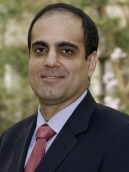
In the field of prostate cancer, we have come full circle in regard to our perception of the importance of testosterone in prostate cancer. Since the description of the hormonal responsiveness of prostate cancer by Huggins in the 1960s, we went from believing castration was important for all, to believing it was beneficial only for some, to believing it was harmful to some, and now believing it may be harmful to many. We went from believing testosterone was bad, to now believing it is not only good but also essential for protection of the aging male.
It is now known that testosterone not only is an important factor in influencing prostate development, carcinogenesis, and cancer progression but also influences a variety of bodily functions, beyond the genitourinary tract. As men realize the benefits of testosterone replacement for decreased libido and reduced energy, and its use becomes more widespread, we have begun to ask about the risks. Can it be safe for everyone? Can it be safe in every clinical scenario?
In the evolution of contemporary health care, integrated care models, linked to common disease states, will become a central point of access to the health care system. For men, the concerns about hypogonadism may serve as an inlet to evaluation for cardiac, metabolic, musculoskeletal, and malignant disease processes. As such, it is essential that urologists remain the most knowledgeable caregivers in regard to the state of hypogonadism, and, in doing so, become the gatekeepers in Men’s Health. For that reason, this issue of Urologic Clinics , devoted to the hypogonadal male, carries great significance to me and is one I believe we should all read with focus. Our guest editor, my colleague and friend, Dr Joseph P. Alukal, has constructed a fantastic spectrum of articles related to every aspect of testosterone’s relationship with bodily functions and disease processes to be considered in the aging male. As always, I am deeply indebted to Dr Alukal and all of the many outstanding authors who have graciously contributed to the issue. I think this one is a must-read for all urologists.
Stay updated, free articles. Join our Telegram channel

Full access? Get Clinical Tree




